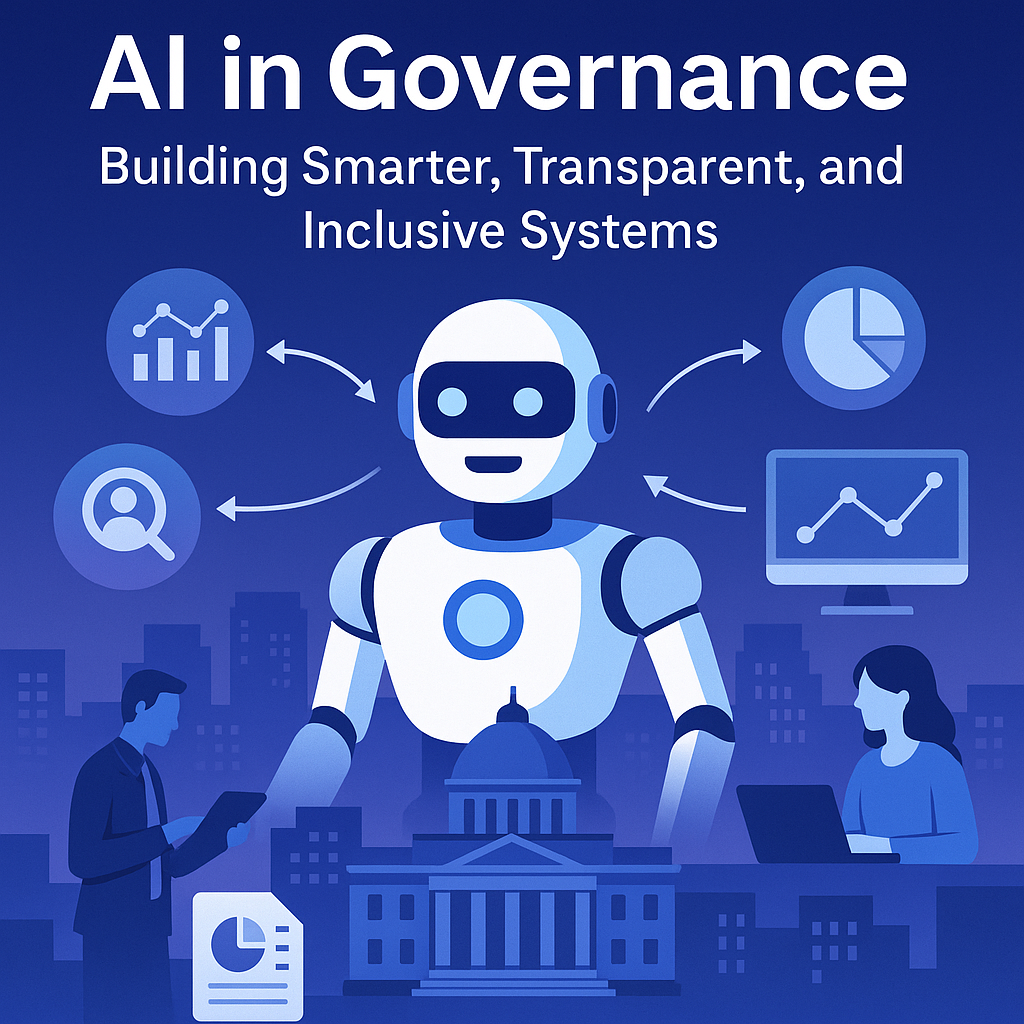Artificial Intelligence (AI) is no longer confined to research labs or private-sector innovations—it is rapidly transforming how governments function and how citizens experience public services. From predictive policymaking to citizen sentiment analysis, AI has the potential to make governance more transparent, efficient, and inclusive.
Why AI in Governance Matters
Governments handle vast amounts of data daily—ranging from health records and education statistics to urban infrastructure and financial transactions. Traditional systems often struggle with:
-
Data Overload – Huge datasets with limited actionable insights.
-
Delayed Decision-Making – Policies that respond slowly to fast-changing realities.
-
Limited Citizen Engagement – Feedback loops that miss ground realities.
AI bridges these gaps by enabling governments to:
-
Automate Routine Processes – Reduce administrative burden with intelligent automation.
-
Predict and Plan – Use machine learning models to forecast demand for healthcare, public transport, or social protection.
-
Understand Citizens Better – Apply natural language processing to analyse citizen feedback, social media conversations, and grievance data.
-
Enhance Transparency – Detect anomalies in financial flows, procurement, or service delivery in real-time.
Global Use Cases of AI in Governance
🌍 Healthcare: AI-powered dashboards track disease outbreaks and optimise resource allocation.
🌍 Urban Development: Smart city platforms use AI to monitor traffic, pollution, and utilities.
🌍 Justice Systems: AI tools help courts manage caseloads and improve accessibility to legal information.
🌍 Public Finance: Automated fraud detection ensures accountability in welfare schemes.
Challenges and Considerations
While the promise of AI in governance is immense, it also raises critical concerns:
-
Ethics & Bias – AI must be designed to avoid reinforcing existing social inequalities.
-
Data Privacy – Protecting citizens’ information is paramount.
-
Capacity Building – Governments need skilled human resources to manage AI responsibly.
-
Interoperability – AI systems must integrate seamlessly with existing government platforms.
The Way Forward
To unlock AI’s full potential in governance, a balanced approach is essential—one that combines technology, policy frameworks, and citizen trust. Governments must adopt responsible AI principles, invest in data governance, and partner with innovators who understand both technology and public systems.
Triyog Innovation’s Role
At Triyog Innovation, we design and implement AI-driven solutions that empower governments and development partners to:
-
Build AI-powered dashboards for decision-making.
-
Analyse citizen sentiments for more responsive governance.
-
Deploy machine learning models for predictive planning.
-
Ensure data security and ethics in AI governance frameworks.
Our experience spans digital health, governance, education, and financial inclusion, working with leading national and international agencies. We believe in combining AI, data, and domain expertise to transform governance systems for a more transparent and citizen-centric future.


